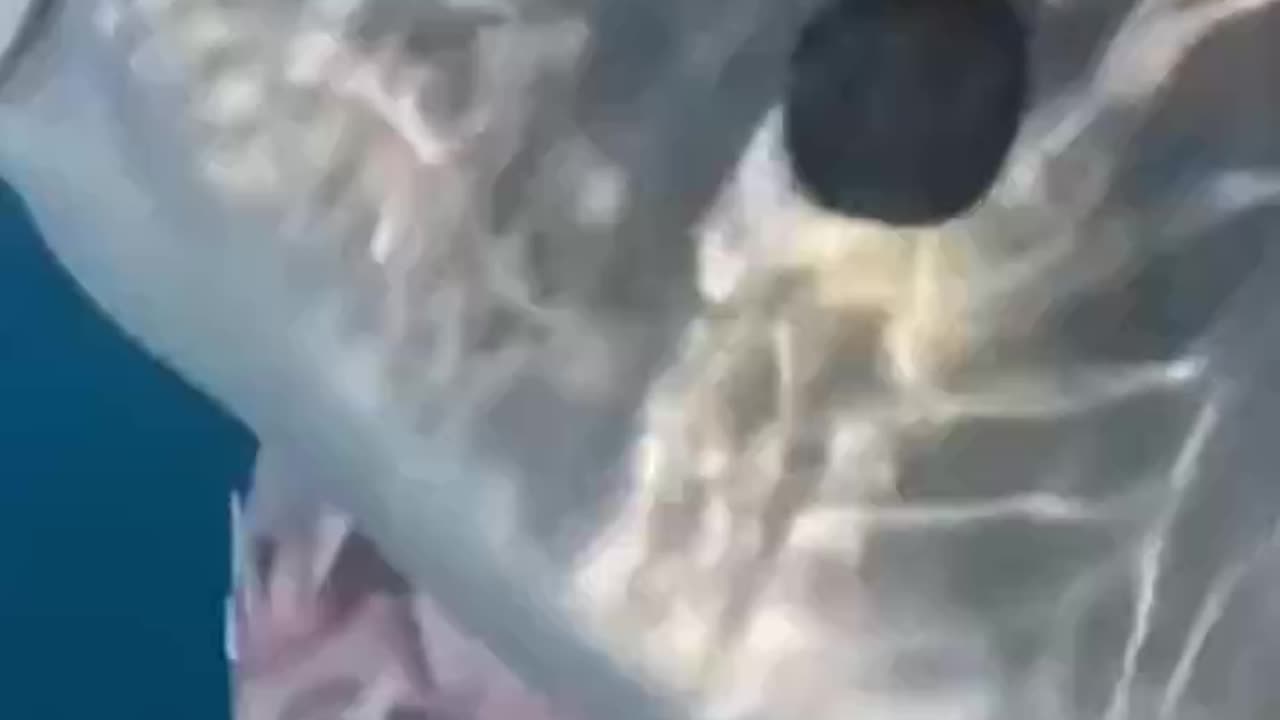Premium Only Content

Great White Sharks depend on Humans to reduce Recycle #shorts #sharks #florida #reducereuserecycle
Video credits belong to Brian Jung via Storyful, Great White Sharks depend on Humans to reduce Recycle #shorts #sharks #florida #reducereuserecycle #zerowaste #wastereductionnetwork Copyright Disclaimer Under Section 107 of the Copyright Act 1976, NON-PROFIT, EDUCATIONAL, ACTIVISM, allowance is made for "fair use" for purposes such as PARODY, COMMENTARY, REACTION, criticism, comment, news reporting, teaching, scholarship, and research. Fair use is a use permitted by copyright statute that might otherwise be infringing. Non-profit, educational
The video was filmed in #florida on a #boat off the coast of #sarasota of several #sharks eating #whale
Human waste and pollution can harm great white sharks in several ways:
Water Contamination: Pollution from human waste, such as sewage and chemicals, can contaminate the water where great white sharks live. This contamination can disrupt their natural habitats and affect their health. Chemical pollutants can also accumulate in the tissues of sharks through a process called bioaccumulation, which can lead to various health problems.
Altered Prey Populations: Pollution and human waste can lead to changes in the populations of prey species that great white sharks rely on for food. For example, runoff from agricultural areas can introduce excess nutrients into coastal waters, leading to algal blooms that deplete oxygen levels and harm fish populations. This disruption in the food chain can indirectly impact great white sharks by reducing their prey availability.
Plastic Pollution: Great white sharks can also be harmed by plastic pollution in the ocean. They may mistake plastic debris for prey or accidentally ingest it while feeding. Ingesting plastic can cause internal injuries, digestive problems, and even death. Additionally, plastic pollution can degrade habitats and alter ecosystems, which can have indirect effects on great white sharks and their prey.
Climate Change: While not directly related to human waste and pollution, climate change is exacerbated by human activities and can have significant impacts on great white sharks. Rising sea temperatures, ocean acidification, and changes in ocean currents can disrupt the distribution and abundance of prey species, alter habitats, and ultimately threaten the survival of great white sharks.
Overall, human waste and pollution pose significant threats to great white sharks by directly harming their health, disrupting their food sources, and degrading their habitats. Addressing these issues through sustainable practices and conservation efforts is crucial for protecting these iconic predators and maintaining healthy marine ecosystems.
@wastereductionnetwork #wastereductionnetwork #shorts #zerowaste #dumpsterdiving #dumpster #happy #reduce #reuse #zerowaste #sustainableliving #viralshorts #corporateresponsibility #reducereuserecycle #donate #viralshorts #shortsvideo #shortsfeed #youtubeshorts #sustainabletextiles #sustainablefashion #springcleaning #sharks #greatwhitesharks #oceans #boat #water #fish #fishing
-
 2:19:32
2:19:32
Badlands Media
1 day agoDEFCON ZERO Ep. 005: False Flags, Cyber Fronts & Global Power Plays
140K52 -
 2:35:23
2:35:23
FreshandFit
7 hours agoWhy Black Men Don't Date Black Women Debate
32.5K31 -
 2:03:42
2:03:42
Inverted World Live
10 hours agoBigfoot Corpse Coming to the NY State Fair | Ep. 94
104K24 -
 6:16:23
6:16:23
SpartakusLIVE
11 hours ago$1,000 Pistol Challenge || #1 ENTERTAINER of The EONS Eradicates BOREDOM
80.3K2 -
 2:33:37
2:33:37
TimcastIRL
9 hours agoTrump Orders Review of Smithsonian For Being Woke & Out of Control | Timcast IRL
182K71 -
 3:09:10
3:09:10
Barry Cunningham
12 hours agoPRESIDENT TRUMP HAS TAKEN THE MONSTER AWAY FROM THE LEFT! HORROR STORIES WON'T WORK ANYMORE!
81.6K80 -
 1:29:55
1:29:55
WickedVirtue
6 hours agoLate Night Fortnite w/ Friends
50.9K -
 3:34:06
3:34:06
This is the Ray Gaming
7 hours ago $1.07 earnedCould you be? Would you be? Won't you be my RAYBOR? | Rumble Premium Creator
30.9K -
 1:46:52
1:46:52
JahBlessGames
8 hours ago🎉Come een' and come tru' - VIBES | MUSIC | GAMES
52.3K2 -
 38:47
38:47
MattMorseTV
10 hours ago $14.49 earned🔴Tulsi just CLEANED HOUSE.🔴
68.2K121